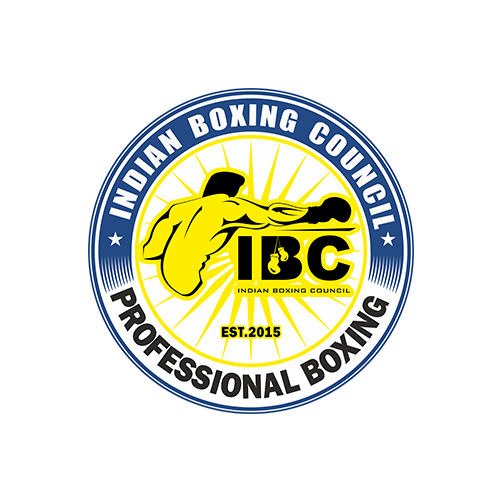- ADMINISTRATIVE REMEDIES Any claim, complaint, or protest against the IBC, or any controversy, appeal, or dispute concerning the IBC or any IBC contest, ruling, order, or action, or arising under the IBC Constitution or these Rules and Regulations must first be presented to the IBC as a claim that may be resolved by administrative remedies.
- To be recognized and valid, any such claim, complaint, or protest must be submitted to the IBC President in writing by the aggrieved party or his authorised representative within fifteen (15) calendar days after the claim first arose. Each such claim, complaint, or protest must also be accompanied by a non-refundable fee of Rs. Five Thousand (INR 5,000) to cover the costs and expenses of the IBC relating to the processing of any such claim, complaint, or protest. The IBC may in its sole discretion grant a waiver of all or a portion of such fee, but no such waiver shall apply unless it is granted in writing by the IBC and received by the protesting party.
- Upon receiving a recognized claim, the President, in his discretion, may attempt to resolve the claim, or may refer the matter to either the IBC Grievance and Appeals Commission or any other commission he may choose to form.
- The IBC may institute such policies and procedures as it may deem appropriate from time to time for the administration and processing of any recognized claim. In general, the IBC representative(s) addressing such a claim will first investigate the claim, seek such additional information as may be required, hold hearings (telephonic or in-person) if necessary, and then issue a decision to accept or reject the appeal in whole or in part. The President shall notify all interested parties in writing of the decision of the IBC.
- In the event that the complainant remains unsatisfied with the IBC’s decision following these administrative remedies, the complainant must then seek compulsory mediation. No party may invoke or seek remedies without first seeking, and providing the IBC the opportunity to provide, administrative relief.
- INDEMNIFICATION All parties expressly agree, by doing business with the IBC, to indemnify and hold harmless the IBC, affiliated units and commissions, and all officers, members of the Executive Council, representatives, attorneys, and agents (each, a “IBC Indemnified Party”) thereof against any and all losses, claims, damages, liabilities, penalties, actions, judgments, suits, costs, expenses, and disbursements (including the reasonable and actual fees, charges and disbursements of any counsel for any IBC Indemnified Party, incurred by any IBC Indemnified Party or asserted against any IBC Indemnified Party by any third party or by any person arising out of the actions of such IBC Indemnified Party or any actual or prospective claim, litigation, investigation or proceeding, whether based on contract, tort or any other theory, whether brought by a third party or by any person directly, and regardless of whether any IBC Party is a party thereto, AND INCLUDING WITHOUT LIMITATION WITH RESPECT TO ANY ACTION OR INACTION ARISING FROM ANY IBC INDEMNIFIED PARTY’S NEGLIGENCE OR STRICT LIABILITY, such that no IBC Indemnified Party shall be held liable for or not be indemnified for any action taken in good faith and not resulting from gross negligence or wilful misconduct of such IBC Party, as determined by any court of competent jurisdiction by final and non appealable judgment.
- DISCIPLINARY RULES
The IBC has the power and authority to impose disciplinary sanctions on any person or organization that violates any of the directives in the Code of Ethics, Technical Rules, Medical Handbook or any ruling of the IBC. The procedure of the IBC in disciplinary matters shall be as follows:
(a) Any party may file with the IBC written charges regarding any violation of the IBC rules, or the IBC may independently take notice of and act upon any such violation.
(b) Violations may include, but are not limited to, the following:
i. Failing to comply with any rule pertaining to business dealings with the IBC;
ii. Intentional fouls or unsportsman like behavior in the ring or relating to a contest;
iii. Violation of antidoping or other safety measures imposed by the IBC; or
iv. Defamation of or bringing disrepute to the IBC or the sport of boxing.
(c) Upon recognition of any potential rule violation, the IBC President may refer the matter to the IBC Disciplinary and Appeals Committee. After investigation, the Committee may recommend the imposition of penalties in accordance with this rule. Alternatively, the IBC President may intervene directly in accordance with his power and authority to act in the best interests of boxing.
(d) In cases of clear violations, the IBC may issue its decision following its investigation of the facts and examination of the relevant rules. In other circumstances, the IBC may hold hearings, request statements from the accused, or institute such other procedures as it may deem appropriate under the circumstances. However, the IBC is not required to institute any particular process, as an aggrieved party will retain the right to an administrative appeal.
(e) The IBC’s decision may include the imposition of penalties including fines and suspension or expulsion from any involvement in IBC bouts, ratings, or vacating a championship or challenger status when appropriate.


